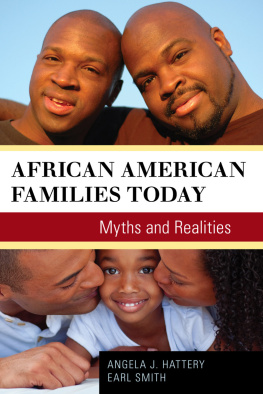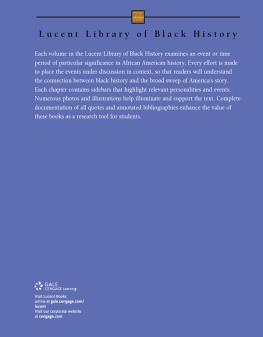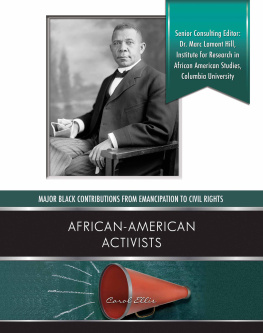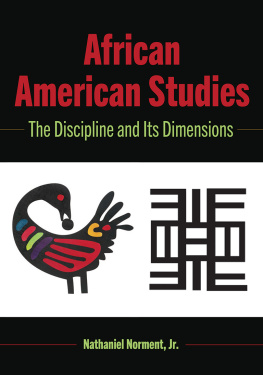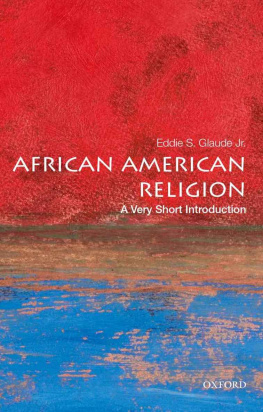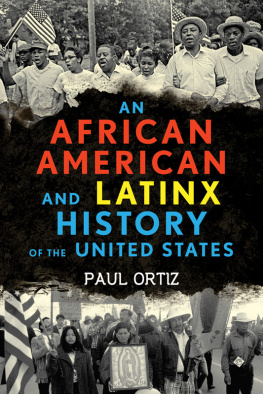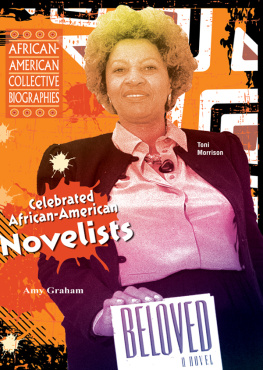Published by Routledge
270 Madison Ave, New York NY 10016
2 Park Square,Milton park, Oxon, OX14 4RN
Transferred to Digital Printing 2010
Copyright 1997 Dia N.R. Sekayi
All rights reserved
Library of Congress Cataloging-in-Publication Data
Sekayi, Dia N.R.
African American Intellectual-Activists : legacies in the
struggle / Dia N.R. Sekayi.
p. cm. (Studies in African American history and culture)
Includes bibliographical references and index.
ISBN 0-8153-2921-0 (alk. paper)
1. Afro-American intellectualsInterviews. 2. Afro-American
intellectualsBiography. 3. Political activistsUnited
StatesInterviews. 4. Political activistsUnited StatesBiography.
5. Afro-AmericansCivil rightsHistory20th century.
6. Black nationalismUnited StatesHistory20th century.
7. Self-perception. I. Title. II. Series.
E185.86.S45 1997
323.1196073dc21
97-24279
Publisher's Note
The publisher has gone to great lengths to ensure the quality of this
reprint but points out that some imperfections in the original may
be apparent.
Foreword
by Mwalimu J. Shujaa
In African American Intellectual Activists: Legacies in the Struggle, Professor Dia Sekayi uses narrated life histories to introduce us to 11 women and men who are individually known and respected for their commitment and dedication to the uplift of African people. These men and women compel our attention because they have chosen a path in life that often brings them into conflict with the politically dominant culture in the United States. The respect they receive from others is earned because it is generally understood that one does pay a price for engaging in activism on behalf of African people. Through their own words and with the assistance of Professor Sekayi's insightful analyses, we learn how these African American intellectuals weigh the risks they take as activists and why they place such high value on the goals they are working to achieve.
The people who shared their life histories with Professor Sekayi maintain close affiliations with the pan-African nationalist community in the United States, although, as she points out, not all would identify themselves as nationalists. Professor Sekayi observes, however, that all of these men and women agreed to some extent in the tenets of Black Nationalism. African Americans who struggle for self-determination and national liberation are also struggling against white supremacy and racism. Frantz Fanon (1983) warned us that the object of racism, as a form of cultural aggression, is not the individual African but the African form of existing. Virtually every person of African descent who has experienced western schooling whether it be in Africa, Europe or North America knows this well. The pathway to becoming an intellectual in the western tradition takes one through the schooling process which, if not vigorously resisted, will most assuredly alienate any African from an appreciation of and respect for African forms of existing.
To fully appreciate African American Intellectual Activists: Legacies in the Struggle, one needs to understand that societal institutions in the United States are not intended to produce people who commit their lives to engaging in activism that challenges the cultural and political authority maintained by the nation state's ruling elite. Indeed, if one is regarded as an intellectual, s/he is expected to demonstrate some command of the intellectual history and paradigms of Europeans including European concepts of who Africans have been, are or should be. For those of us who have experienced this cultural assault, re-centering ourselves in African cultural history means consciously re-evaluating both our acquired knowledge bases and the interpretative frameworks we use to understand reality. Amilcar Cabrai (1973) referred to this phenomenon as re-Africanization. He described it as a conversion of mind. The images presented in African American Intellectual Activists: Legacies in the Struggle help us to understand the dynamics of the purposeful personal transformation Cabral describes as it occurs among men and women of African descent in the United States.
Some time ago, Professor Marimba Ani (1980) began using the term Maafa (disaster in Kiswahili) to refer to the trade in African lives and enslavement of African beings as well as the continuing effects of this great tragedy on African people. Alienation from consciousness of ourselves as African beings is one of the wounds inflicted by the Maafa. In spite of the cultural oppression we experience, we know that there have been many times when we Africans recovering from the effects of enslavement and colonization have been able to tear ourselves away from the European-centered consciousness that engulfs our intelligence. As Fanon has told us, this tearing away is the only way to save ourselves from rootlessness. The first determination that must be made in our analysis of the tearing away process is to identify what compels an African to look for a way to liberate his/her consciousness. Too many of us who are conceptually incarcerated (see Nobles, 1986) do not seek freedom from this condition because our notions about who Africans are in the world have been learned through the institutions that maintain white supremacy by inculcating ideas of African inferiority. A person who doesn't realize s/he is lost is not looking for a way home.
While the Maafa has been a collective experience for us as Africans, we have each lived it in personal contexts, as well. Therefore, we each have to overcome our personal challenges in order to make the choices necessary to change the way we live. Some of us remain yoked to alien realities because they are the only realities we know. This is one of the most tragic effects of the Maafa. Nkrumah recognized this and it is what led him to say that the secret of life is to have no fear. We must individually overcome our fear of what we do not know. We can be aided in the process, but, ultimately, it is as individuals that we must make the decision to let go of our fear. Sometimes what is feared is the action that one may be compelled to take as a consequence of what one knows.
Professor Sekayi is driven to understand why, out of life's myriad roads, these men and women chose to be intellectual activists. Knowing her as I do, it is not ironic that her own life history is emblematic of African people's ongoing struggle to reclaim knowledge of ancestral wisdom from an alienation imposed by epochs of enslavement and colonization. Her presentation of these stories is sensitive to the need to reclaim cultural memory she shares with the women and men whose stories she tells in this book. This is an important work. It will stand as a contribution to the recorded history of the African experience.
References
Ani (Richards), Marimba (1980). Let the Circle be Unbroken: The Implications of African Spirituality in the Diaspora. Trenton, NJ: The Red Sea Press
Cabral, Amilcar. (1973). National Liberation and Culture. In Africa Information Service (Ed.)


